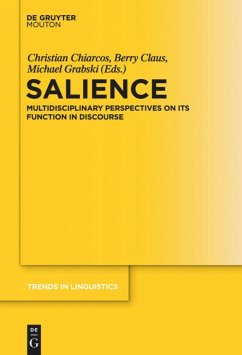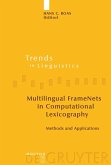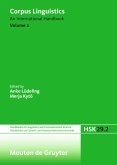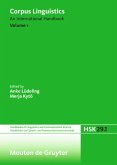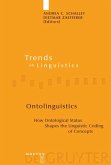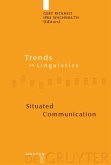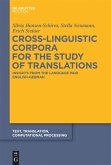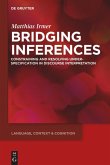The volume addresses the role of salience in discourse and provides broad coverage of various perspectives on and functions of discourse salience. The range of multidisciplinary approaches adopted in the volume differ with regard to the underlying theoretical proposals and foci of research. The topics range from (i) entity-based salience to (ii) discourse-structural salience of utterances to (iii) extra-linguistic factors of salience in discourse. Accordingly, the volume is organized into three sections.
Part I focuses on discourse referents and the choice of referring expressions. The contributions cover issues such as salience and demonstrativity in Russian, discourse salience and grammatical voice in the West Siberian language Eastern Khanty, the joined information of syntactic and semantic prominence, and a computational framework of salience metrics. The contributions to Part II are concerned with linguistic structures at or above the clause level. The salience of discourse segments is addressed with respect to the translation of discourse relations and position of verb arguments in Old High German. Part III extends the scope beyond purely linguistic phenomena and deals with the role of extra-linguistic salience in discourse processing. Visual salience in a situated-dialog context, salience marking by hypertextual links, and extra-linguistic salience derived from a mental representation of the described situation are all discussed here.
The notion of salience is of relevance to discourse studies in theoretical linguistics, computational linguistics, as well as psycholinguistics.
Part I focuses on discourse referents and the choice of referring expressions. The contributions cover issues such as salience and demonstrativity in Russian, discourse salience and grammatical voice in the West Siberian language Eastern Khanty, the joined information of syntactic and semantic prominence, and a computational framework of salience metrics. The contributions to Part II are concerned with linguistic structures at or above the clause level. The salience of discourse segments is addressed with respect to the translation of discourse relations and position of verb arguments in Old High German. Part III extends the scope beyond purely linguistic phenomena and deals with the role of extra-linguistic salience in discourse processing. Visual salience in a situated-dialog context, salience marking by hypertextual links, and extra-linguistic salience derived from a mental representation of the described situation are all discussed here.
The notion of salience is of relevance to discourse studies in theoretical linguistics, computational linguistics, as well as psycholinguistics.

